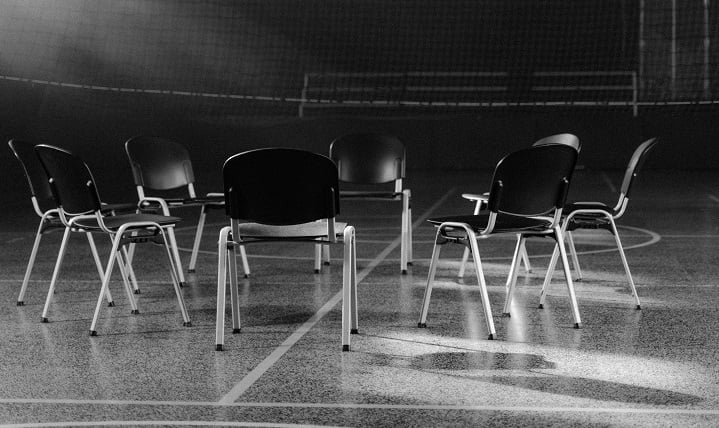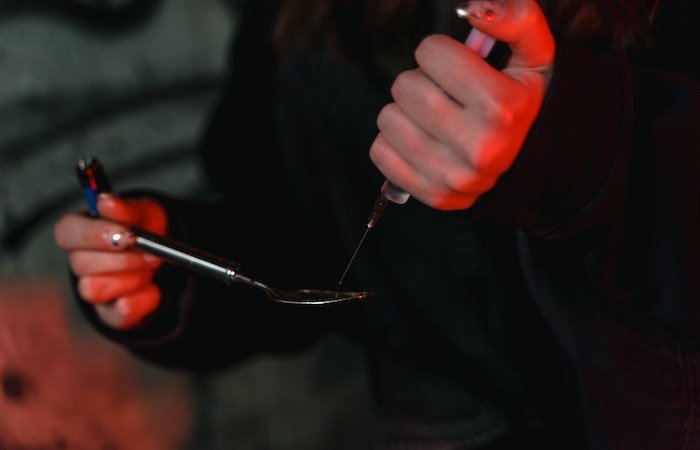Drug & Alcohol Rehab in Barnsley and near Barnsley
Quick Links for help with addiction in Barnsley
- Dual Diagnosis at Drug Rehab and Alcohol Rehab in Barnsley
- Private Drug Rehab and Alcohol Rehab in Barnsley: Benefits and Drawbacks
- Council-Funded Drug Rehab and Alcohol Rehab in Barnsley: Benefits and Drawbacks
- Alternatives to Drug Rehab and Alcohol Rehab in Barnsley
- Cocaine Rehab in Barnsley
- Heroin Rehab in Barnsley
- Cannabis Rehab in Barnsley
- Therapies Available at Drug Rehab and Alcohol Rehab in Barnsley
- Aftercare After Drug Rehab and Alcohol Rehab in Barnsley
- Get Help at a Drug Rehab and Alcohol Rehab in Barnsley Today
If you are dealing with a drug or alcohol problem in Barnsley or near Barnsley, you will need to get rehab help for it as soon as possible.
Addiction is an extremely serious issue in Barnsley, one that has been getting worse and whose consequences have been devastating despite drug and alcohol rehab support.
In fact, according to the Office for National Statistics, there were more deaths related to drug use in 2019 than there had been in any of the previous 20 years. [1]
This indicates just how serious addiction is in Barnsley and how much professional drug and alcohol rehab support is needed.
With the right drug and alcohol rehab service accessed at the right time, it is possible for any addiction to be overcome.
Get the help you need from a drug and alcohol rehab in Barnsley by calling our team today on 0800 088 66 86
Dual Diagnosis at Drug Rehab and Alcohol Rehab in Barnsley

Two people jumping at a sunset after drug and alcohol rehab treatment in Barnsley
Addiction to drugs or alcohol often rears its head as a symptom of underlying mental health issues and psychiatric disorders, which can further complicate drug and alcohol rehab services
According to NESARC data, [2] 28.6% of people with a current alcohol use disorder diagnosis had at least one personality disorder as well.
People with mental health issues often experience considerable emotional pain and psychological frustration, which can encourage experimenting with addictive substances as a form of self-medicating, which then goes on to need rehab treatment.
Common mental health conditions experienced at drug rehab & alcohol rehab in Barnsley
- Anxiety
- Depression
- Attention Deficit Hyperactivity Disorder (ADHD)
- Bipolar disorder
- Borderline personality disorder
- Schizophrenia
- Post-Traumatic Stress Disorder (PTSD)
Although it makes logical sense for someone who is experiencing intense discomfort to ease that discomfort with recreational drugs, it puts them at greater risk of becoming addicted and ultimately exacerbates their mental torment, adding drug or alcohol rehab on top of their existing need for mental health support.
It is estimated that approximately 50% of people with a substance use disorder will experience a psychiatric disorder in their lifetime. [3]
Techniques such as cognitive behavioural therapy, dialectical behavioural therapy and mindfulness have garnered significant scientific support as efficacious treatments for mental health issues and cornerstones of drug and alcohol rehab.
To discover how a drug and alcohol rehab in Barnsley will work to support your mental health, call us today on 0800 088 66 86
Private Drug and Alcohol Rehab in Barnsley: Benefits and Drawbacks

Example of a kitchen at a drug and alcohol rehab
Attempting to detox without rehab or other medical support can be incredibly dangerous, and may even put a person’s life in jeopardy depending on addiction severity.
Drug and alcohol detoxification is a medical condition that requires expert supervision from trained health professionals and addiction specialists. That is why private residential drug rehab and alcohol rehab in Barnsley is highly recommended.
Residential drug rehab and alcohol rehab in Barnsley provides treatment and hospitality of the highest standard, which has led to success rates that are higher than the national average.
Some of the pros of private drug and alcohol rehab that contribute to Barnsley’s high addiction success rate include:
- Immediate drug rehab and alcohol rehab admission
- Expert 24-hour rehab and medical care
- Medically-assisted drug detox when necessary
- Comprehensive drug rehab and alcohol rehab services
- Compassionate support in a nurturing rehab environment free of triggering stimuli
- Strong, empathic drug and alcohol rehab support system
- Wide range of helpful drug rehab and alcohol rehab resources
- Individualised drug rehab and alcohol rehab treatment programmes
- Access to therapeutic activities alongside comprehensive drug rehab and alcohol rehab treatment
- Family visits permitted (where appropriate)
- Psychiatric assessments for comprehensive rehab recovery
- 12-month rehab aftercare programmes are provided free of charge
There are not many disadvantages to private drug rehab and alcohol rehab, although it may be more suited to some than others, and there are a number of potential drawbacks worth mentioning so that patients can be fully informed before making a commitment.
Drawbacks of private drug and alcohol rehab in Barnsley and near Barnsley
Private drug rehab and alcohol rehab is typically considerably more expensive than council-funded drug and alcohol rehab, which although justified by the level of care provided, can be a barrier for some people.
On average private drug and alcohol rehab programmes cost £1,500 per week, but can be as low as £600 or as high as £6,000 depending on the level and type of treatment required.
Rehab Recovery guarantees to do all in our power – such as by offering payment plans – to ensure that rehab addiction treatment remains as affordable as possible for all prospective patients.
Treatment programmes employed at private drug and alcohol rehab are highly structured and can be quite intense, which is something to bear in mind for those for whom that may pose an issue.
Also, residential drug and alcohol rehab requires patients to live at the facility for the duration of treatment, which may interfere with personal obligations like career responsibilities and childcare.
For help accessing private rehab in Barnsley, give our expert team a call today on 0800 088 66 86
Council-Funded Drug Rehab and Alcohol Rehab in Barnsley

Group therapy chairs at a drug and alcohol rehab in Barnsley
There may be limited availability for drug and alcohol rehab funded by the local council in Barnsley, but it is still available.
Council-funded drug and alcohol rehab options offer much of the same services as private rehab and have many significant benefits.
However, there are also several key disadvantages and potential barriers to access that one must consider when thinking about council-funded drug and alcohol rehab services.
Pros of council-funded drug and alcohol rehab in Barnsley and near Barnsley
- No cost or limited cost to drug rehab and alcohol rehab treatment
- Anyone with addiction is eligible for drug rehab and alcohol rehab support
- Utilising rehab clinics or GP services that are often centrally located and easy to access
- Close proximity to family, friends and loved ones whilst at drug rehab and alcohol rehab
Cons of council-funded drug and alcohol rehab in Barnsley and near Barnsley
- Access to drug rehab and alcohol rehab is becoming increasingly difficult
- Long waiting lists for even basic rehab support
- The rehab admission process may be quite long
- Residential drug rehab and alcohol rehab is not guaranteed
- Patients may be expected to engage with local day services before being considered for detox and rehab
- Once admitted, patients may be asked to attend different rehab centres
- External distractions may hinder the rehab recovery process
- Patients may not have access to the same counsellor or therapist on a consistent basis, unlike in a private drug rehab and alcohol rehab
For more guidance on accessing council-funded addiction treatment services and rehab in Barnsley, give our team a call today on 0800 088 66 86
Alternatives to Drug Rehab and Alcohol Rehab in Barnsley

Woman practising yoga at a drug and alcohol rehab in Barnsley
Professionally supported drug and alcohol rehab is one of the best ways to recover from addiction, but it isn’t for everyone.
If you think you might be someone to whom residential rehab in Barnsley is not suitable, you are not alone.
There are a range of alternative options to formal drug and alcohol rehab support that have yielded fantastic results for many people who have struggled with substance abuse.
These include:
1. Barnsley Recovery Steps
Address: 5-6 Burleigh Ct, Burleigh St, Barnsley S70 1XY
Telephone: 01422 383 063
Website: https://humankindcharity.org.uk/service/barnsley-recovery-steps/
2. Gamblers Anonymous
Address: Jubilee Church Hall, High St, Bentley, Doncaster DN5 0AT
Telephone: 07771 427 429
Website: https://www.gamblersanonymous.org.uk/
3. Phoenix Futures
Address: 29-31 Collegiate Cres, Broomhall, Sheffield S10 2BJ
Telephone: 01142 685 131
Website: https://www.phoenix-futures.org.uk/
Reach out to Young Minds, Samaritans, Papyrus, and Rethink Mental Illness for support with your well-being as you navigate through your rehab treatment and your new life in recovery.
Whatever help you need to beat addiction – whether from a conventional drug and alcohol rehab in Barnsley or one of these excellent alternative services – call our team today on 0800 088 66 86
Cocaine Rehab in Barnsley

Two people climbing a mountain together after drug and alcohol rehab in Barnsley
Cocaine use disorders are among the most harmful illicit drug addictions and are woefully prevalent in The UK, making up a significant portion of drug and alcohol rehab treatments.
Fortunately, many sufferers wishing to overcome their cocaine dependency and restore balance in their lives can do so through inpatient drug and alcohol rehab in Barnsley.
At a drug & alcohol rehab in Barnsley, an addiction specialist will often recommend a 30-day residency for cocaine treatment.
This is because cocaine and crack cocaine addictions are psychological in nature – requiring a combination of intensive addiction counselling and behavioural therapy to overcome
Cocaine detox is not required, as cocaine is not physically addictive, however, one should expect a range of physical and mental withdrawal symptoms at rehab as the substance leaves the body.
Your chosen rehab for cocaine in Barnsley will have your safety and comfort in mind throughout this process, and there’s always the option to receive medication.
As stimulant withdrawal usually exhibits mental symptoms, prescription drugs such as Benzodiazepines are used at drug and alcohol rehab to treat anxiety, low mood, or restlessness.
Once withdrawal has passed, rehab subjects are offered a comprehensive programme of addiction therapies and rehab treatments.
Overcome your cocaine addiction with the help of a rehab in Barnsley today by calling us on 0800 088 66 86
Heroin Rehab in Barnsley

Heroin addictions are notoriously difficult addictions to overcome, leading many suffering to believe that recovery is impossible.
However, recovery has been achieved by many via inpatient rehab care and a comprehensive treatment programme at a specialised rehab clinic.
In order for patients to reap the benefits of a residential drug and alcohol rehab programme and personalised therapies, a longer stay at rehab is encouraged.
So that the physical and psychological elements of heroin addiction can be addressed, patients should often consider spending at least 60 days at a drug & alcohol rehab in Barnsley.
While standardized treatment is avoided, each recovery plan for heroin includes similar rehab elements. These are a combination of pharmacological support and behavioural management with subsequent outpatient treatment to help support sobriety after rehab has ended.
Additionally, heroin rehab programmes will include a medicated heroin detox tailored to suit the severity of the opioid addiction in question.
Following a successful detox, patients will undergo a thorough rehab therapy programme to encourage long-term abstinence and keep heroin use firmly in the past.
Overcome your heroin addiction with the help of a rehab in Barnsley today by calling us on 0800 088 66 86
Cannabis Rehab in Barnsley

Owing to its growing popularity, many people are led to believe that cannabis is completely non-addictive and would never need drug and alcohol rehab treatment.
While some strains of cannabis can have certain benefits in moderate doses, the number of people developing harmful cannabis addictions continues to rise.
Fortunately, a plethora of support is available at a drug & alcohol rehab in Barnsley. If you’ve previously tried to stay sober without success or noticed cravings and other ill effects, it might be time to consider rehab treatment.
Many long-term cannabis users will experience psychological symptoms in the first few days of abstaining at rehab, however a cannabis detox is never necessary as cannabis is not physically addictive.
A recent study [4] identified the adverse side effects of regular use of cannabis during adolescence and into adulthood can include:
- Dependence syndrome
- Increased risk of motor vehicle crashes
- Impaired respiratory function
- Cardiovascular disease
- Mental health issues
The main focus of cannabis rehab will revolve around psychotherapy, whereby the root cause of someone’s cannabis addiction is uncovered and formally addressed.
Regardless of whether patients are undergoing rehab therapy on-site or off-site, behavioural interventions are often utilised.
Those suffering from cannabis addictions often respond particularly well to a combination of CBT and Motivational Interviewing whilst at rehab.
Overcome your cannabis addiction with the help of a rehab in Barnsley by calling our team on 0800 088 66 86
Therapies Available at Drug and Alcohol Rehab in Barnsley

Hot stone massage during holistic therapy at a drug and alcohol rehab in Barnsley
There are a variety of therapies offered at drug rehab and alcohol rehab centres in Barnsley to help those trying to beat addiction.
Some of the most widely used treatments at drug and alcohol rehab in Barnsley include:
- Individual Therapy
- Group Therapy
- Cognitive Behavioural Therapy (CBT)
- Dialectical Behavioural Therapy (DBT)
- Brief Interventions
- Motivational Interviewing (MI)
- Motivational Enhancement Therapy (MET)
- Stress Management
- Holistic and Alternative Therapy (Art therapy, music therapy, mindfulness, meditation, acupuncture, yoga, nutritional counselling and more)
To experience any and all of these effective treatments at an alcohol or drug rehab in Barnsley, call our team today on 0800 088 66 86
Aftercare After Drug and Alcohol Rehab in Barnsley

Someone writing in a journal at a drug and alcohol rehab in Barnsley
Once the individual passes through drug and alcohol rehab they are still going to need some support in life after rehab in order to stay sober.
This rehab aftercare support and its support of relapse prevention can come from a number of different places after drug and alcohol rehab in Barnsley has concluded, including:
- Alcoholics Anonymous (AA) [5]
- Narcotics Anonymous (NA) [6]
- Cocaine Anonymous (CA) [7]
- SMART Recovery [8]
- Al-Anon Family Meetings [9]
- Alateen [10]
- Home Detox (if relapse does occur and rehab readmission is not necessary)
- Ongoing rehab outpatient treatment
It should not be seen as a sign of weakness if you relapse after drug rehab and alcohol rehab in Barnsley, as recovery will always take time.
Relapsing is common and occurs between 40% to 60% of adults trying to recover, but it certainly does not mean that drug and alcohol rehab has been a waste.
Rehab gives you all the tools you need to manage your addiction for the rest of your life – skills that will always be helpful to you, even if you face the occasional relapse.
Start your recovery journey at a rehab in Barnsley today by calling our expert team on 0800 088 66 86
Get Help at a Drug and Alcohol Rehab in Barnsley Today

Person typing on a mobile phone at a drug and alcohol rehab in Barnsley
It will be crucial for you to select the best drug and alcohol rehab facility in Barnsley if you want to have the best chance of conquering your addiction.
You can travel from Barnsley to a number of well-known drug and alcohol rehab centres that are internationally renowned and can give you the assistance you need.
The Care Quality Commission (CQC) [11] in England and Wales or the Care Inspectorate (CI) [12] in Scotland regulate all of the rehab centres we recommend.
There are many options for drug and alcohol rehab available in Barnsley, so get in touch with us to talk about your requirements.
Once you decide, we can help organise everything for you and begin your journey to recovery at rehab today.
The rehab services we can refer you to are available across Barnsley, Doncaster, Rotherham, Sheffield, Penistone, Mexborough, Conisbrough, Wath upon Dearne, Adwick le Street, Thurcroft, Grimethorpe, Thurnscoe, Hoyland, Maltby, Cudworth, Treeton, Rossington, Stocksbridge, Dodworth, Kiveton Park, Askern, Wombwell, Hatfield, North Anston, Tickhill, Dinnington, Goldthorpe, Finningley, Thorne, Armthorpe, Swinton, Rawmarsh, Worsbrough, Bawtry, New Edlington, Chapeltown, Laughton en le Morthen, Thorpe Salvin, Elsecar, Ecclesfield, Darton, Stainforth, High Hoyland, Darfield, Brierley, Thrybergh, Swallownest, Sprotbrough and Cusworth, Bentley, Arksey, Brampton-en-le-Morthen, and even more towns in and around South Yorkshire.
For more information about rehab in Barnsley, contact Rehab Recovery on 0800 088 66 86
References for Drug & Alcohol Rehab in Barnsley
[1] https://www.ons.gov.uk/peoplepopulationandcommunity/healthandsocialcare/drugusealcoholandsmoking
[2] https://iv.iiarjournals.org/content/24/5/761
[3] https://www.nimh.nih.gov/health/topics/substance-use-and-mental-health
[4] https://www.thelancet.com/journals/lancet/article/PIIS0140-6736(09)61037-0/fulltext?cc=y=
[5] https://www.alcoholics-anonymous.org.uk/AA-Meetings/Find-a-Meeting/barnsley
[6] https://meetings.ukna.org/meeting/search
[7] https://meetings.cocaineanonymous.org.uk/meetings/
[8] https://uk.meetings.smartrecovery.org/meetings/?location=Barnsley&coordinates=50
[9] https://al-anonuk.org.uk/getting-help/find-a-meeting/
[10] https://al-anonuk.org.uk/alateen/
[12] https://www.careinspectorate.com/index.php/inspection-reports


